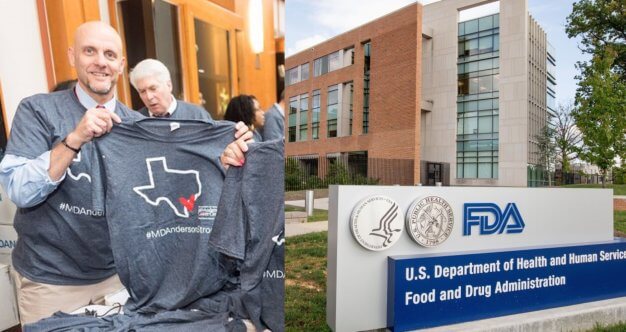The White House has just announced that the Trump Administration intends to nominate Dr. Stephen Hahn to lead the U.S. Food and Drug Administration (FDA). Dr. Hahn, 59, is a radiation oncologist and cancer researcher who specializes in treating patients with lung cancer and sarcoma. Since 2018, he's been serving as the chief medical executive at the MD Anderson Cancer Center in Texas, a National Cancer Institute (NCI)-designated comprehensive cancer center that is widely considered one of the best cancer centers in the country.
Dr. Hahn joined MD Anderson in 2015, and over the past few years, he's served in the center's highest leadership rolesfrom division head to department chair, professor of Radiation Oncology, and ultimately as the chief operating officer followed by chief medical executive. Before MD Anderson, Dr. Hahn was the chair of the Radiation Oncology Department at the University of Pennsylvania's Perelman School of Medicine for nearly a decade.
“I’ve Seen My Grandkids Grow Up Because of Him”
Read MoreAs a next step, the U.S. Senate must thoroughly vet Dr. Hahn and vote on his nomination to lead the FDA. If the Senate does approve the nomination, Dr. Hahn will assume the role of FDA Commissioner, replacing Dr. Norman Sharpless, who has been serving as the acting commissioner since Dr. Scott Gottlieb stepped down from the role this past spring.
The job involves overseeing the entire FDA, the governmental agency responsible for approving every food and drug on the market. When it comes to cancer treatment, the FDA plays an especially vital role. It is the FDA that requires every drug to go through comprehensive testing in clinical trials to make sure they are safe and effective.
To be sure, the FDA’s role extends well beyond drug approvals, and if he’s approved, Dr. Hahn will have a lot on his plate. This includes addressing the epidemic of youth vaping, which has become a top priority for the Administration.
"The Prototypical Healer"
Months before Dr. Hahn was nominated for the role of FDA Commissioner, Dr. Jay Shah, a urologic oncologist at Stanford Medicine, told SurvivorNet that he had tremendous gratitude for Dr. Hahn's mentorship.
"One of the things that I'm particularly thankful for is the influence of people above me who have helped me become the doctor that I am," Dr. Shah said. "So in particular, Steve Hahn is one of those people… without laying hands on you, he has this ability to make me, and I'm sure the patient, feel protected and cared for."
Dr. Shah shared an anecdote from earlier on his oncology career. Dr. Shah had taken part in a weeklong workshop in Colorado, during which everyone was placed into groups with highly regarded oncologists whom he called "titans of industry."
"He may not remember this," Dr. Shah said, "[But] I happened to be in Dr. Hahn's group. And that whole week, I spent eight to 10 hours with him. He learned our names and he learned our projects. I could tell that he was thinking about how best to help us do our project and how to help us develop as physicians and as clinical researchers."
Dr. Shah said that when he thinks about how he conducts himself with his patients and with junior students, residents, and fellows, he strives to follow Dr. Hahn's example.
"He's been a much bigger influence in my life than he would ever realize," he said.
Learn more about SurvivorNet's rigorous medical review process.


